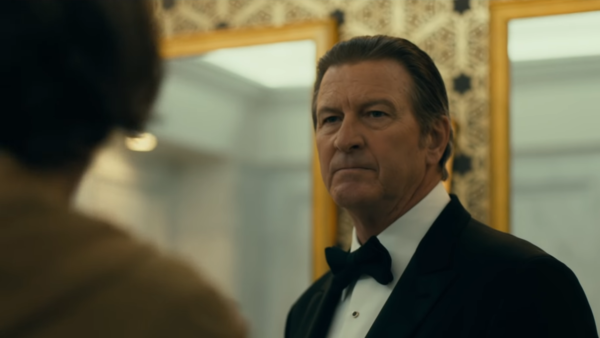Film Theory: Why Joker Is All A Lie
5. Truth Is Fluid

We are supposed to believe that the idea of truth and fact in Joker are fluid concepts controlled by those in power and often weaponised. This is a film acting as much as a commentary on the modern transmission of information (whether real or not) as a tool of control as it is, after all.
The central twist - or in fact, double twist, more accurately - concerns Arthur's past and his relationship to Thomas Wayne. We're initially led down a very clearly sign-posted path to believe that Wayne is Arthur's father. That his mother Penny worked in his service (this much we know to be true) and that they had a relationship in secret that led to a child. From there, Penny became mentally ill, was sent to Arkham and she ended up ostracised and isolated, forced to beg an indifferent Wayne for help.
But then comes the twist as Arthur visits Arkham and is allowed to read his mother's records, which reveal that she was a delusional fantasist who facilitated the abuse of her son, who crucially was adopted and not sired by Wayne. All there in official documentation. Arthur takes it as the truth and kills his "mother."
But THEN, a second twist as we see a picture of Penny as a young woman with an inscription on the back written by Wayne suggesting they actually WERE intimate. It's a multi-stage deception designed entirely to mess with the audience and make them question which parts of it are true and it's also supposed to have us explore the sanctity in truth and how that realtes specifically to who is telling the story and who is listening.
That happens elsewhere too: in Arthur's version of the story around him going to Pogos to do an open night performance, we see the audience falling about laughing (after a slow start). It's presented as a sort of underdog hero moment. But then when Murray Franklin shows footage from the same night, Arthur is clearly dying on stage without audience laughter. Which is the real story?
And then there's the idea of Thomas Wayne's perception as either the saviour of Gotham or everything that's wrong with it, depending on who you ask. The media presents him as a hero - to Bruce Wayne and later, presumably, Batman, he believed in Gotham as a saveable place (from itself mostly), which will guide Batman's pursuit of justice in the future. The same goes for Arthur's first three victims - on the one hand, through Arthur's testimony, they were lascivious corporate bullies who deserved it, and from the other side, they were simply three of Wayne's normal, respectable employees.
In a broader reflection of that, we're never quite invited to say whether the Gotham uprising is in the right or if they are the villains. They adopt clown personas after they're called clowns, but they're called clowns because there's already discontent and protest. The film is very much obsessed with how information and the truth can be completely malleable depending on where, who and what the source is.
There are even more specific moments in the film that give away the fact that what we're watching is not necessarily real...